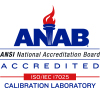 Posted on
Posted on 
In the realm of food safety, maintaining precise temperature control is paramount. Whether you’re managing a food processing plant, storage facility, or distribution center, adhering to temperature regulations is not just a best practice; it’s a legal requirement. This is where data logging, especially in the context of temperature monitoring, emerges as a powerful tool for ensuring compliance within food facilities.
Temperature control is critical at various points in the food supply chain, from receiving and storage to processing and distribution. Data loggers equipped with temperature sensors are strategically placed to monitor critical control points (CCPs). For instance, in cold storage, loggers continuously track temperatures to ensure that perishable goods are kept within the safe range, preventing spoilage and foodborne illness.
The Hazard Analysis and Critical Control Points (HACCP) system is a foundational framework for food safety. Data loggers play a pivotal role in HACCP compliance by continuously recording temperature data and time stamps. This information provides an essential audit trail for regulatory inspections, demonstrating that temperature-sensitive products have been handled safely.
Temperature deviations can result in food safety hazards. Data loggers are programmed to trigger alarms when temperatures move outside preset ranges. This real-time monitoring allows immediate corrective actions to be taken, reducing the risk of product spoilage and compliance violations.
Data loggers are invaluable tools that serve multiple critical roles within food facilities. One of their primary functions is to provide validation and verification of essential processes, such as pasteurization. By meticulously recording and documenting temperature profiles during these procedures, data loggers confirm that food products have undergone the necessary treatment to eliminate harmful pathogens. This meticulous record-keeping ensures strict compliance with rigorous food safety regulations.
Moreover, data loggers play a vital role in preventing cross-contamination within food processing areas. They achieve this by continuously monitoring key factors such as refrigeration unit temperatures and equipment surface temperatures. By promptly detecting any deviations from safe parameters, data loggers help maintain impeccable sanitary conditions. This proactive approach significantly mitigates the risk of pathogen spread, enhancing the overall integrity of food products and safeguarding consumer health.
Beyond their monitoring capabilities, data loggers streamline the documentation and reporting process. With impressive efficiency, they generate comprehensive temperature reports that serve as concrete proof of compliance during regulatory inspections and audits. These reports not only fulfill regulatory requirements but also simplify compliance efforts for food facility staff. This streamlined approach allows personnel to allocate more time and resources to ensure food safety.
Furthermore, temperature monitoring with data loggers goes beyond mere compliance; it acts as a catalyst for continuous improvement. By analyzing historical temperature data, food facilities gain insights into recurring issues and trends. Armed with this knowledge, they can enhance their temperature control practices, fine-tune operational procedures, and reinforce their commitment to food safety. This ongoing process of refinement raises the industry’s standards and exemplifies a dedication to the highest levels of food safety.






